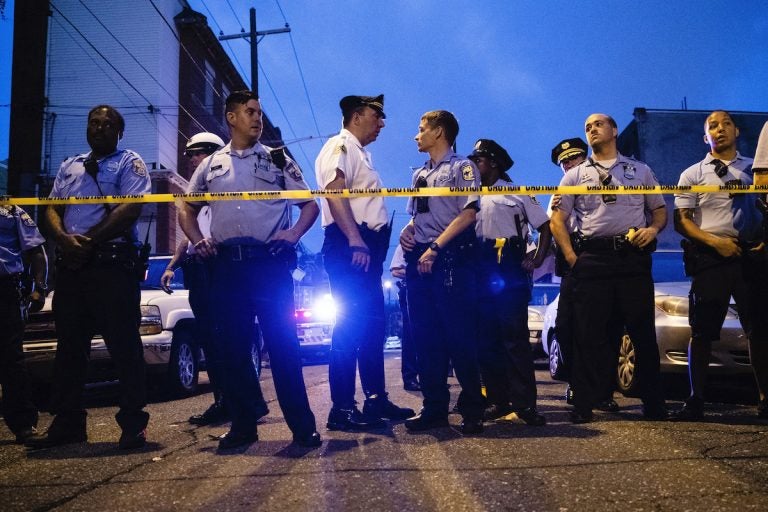The Science of Policing
Listen 49:23
Officers gather for crowd control near a massive police presence set up outside a house as they investigate a shooting in Philadelphia, Wednesday, Aug. 14, 2019. (AP Photo/Matt Rourke)
Police forces in democratic societies are supposed to safeguard the rights of citizens, and protect their lives and well-being. We think of their role in terms of laws, rules, and regulations — but ultimately, so much of what they do is about psychology and human behavior. It’s about how people react to threats, what they do when they panic, and how far a person will go when they feel they have nothing left to lose. What does behavioral science say about these situations? Could research help predict people’s behavior, and suggest effective and safe tactics? We take a look at what role behavioral science could play in creating better police forces, from crowd control to foot patrol and adding female officers to departments.
Also heard on this week’s episode:
- Retired police officer Larry Kniceley recalls a routine traffic stop that could have ended his life. We speak with researchers Judith Andersen and Karen Quigley about what could help officers make solid decisions under a lot of pressure.
- Why do so many cops love BANG, a high-octane caffeine drink?
Segments from this episode
WHYY is your source for fact-based, in-depth journalism and information. As a nonprofit organization, we rely on financial support from readers like you. Please give today.






